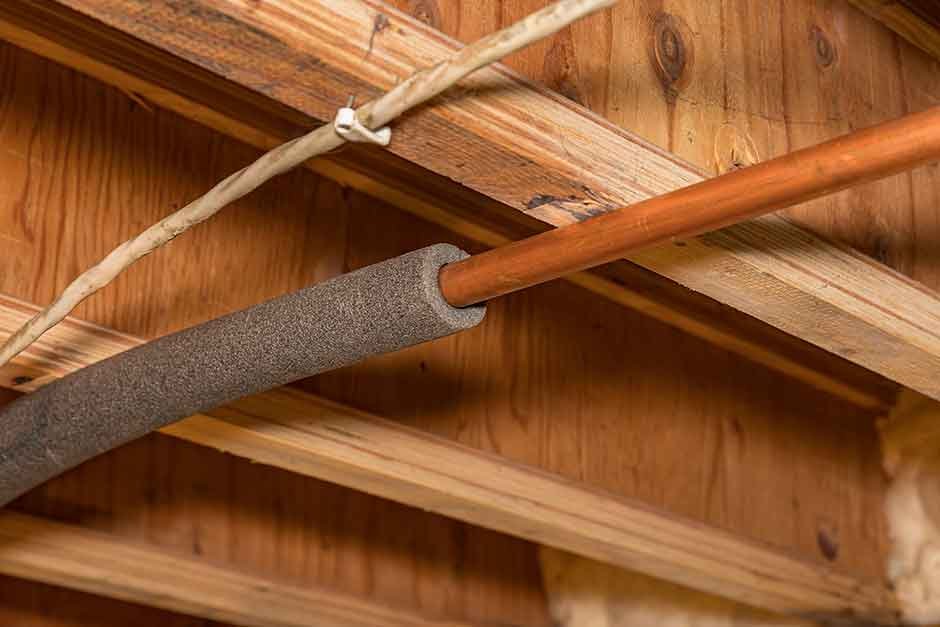The plumbing system in a home is an intricate and vital component of its overall functionality. It ensures efficient distribution of water and the safe disposal of waste. However, this system isn’t isolated from its environment. Seasonal changes, ranging from the sweltering heat of summer to the cold of winter, can significantly affect home plumbing systems. Understanding these impacts is crucial for maintaining the longevity and efficiency of these systems.
This article delves into the impact of seasonal changes on home plumbing systems.
Spring Thaw: Addressing The Aftermath
As winter’s icy grip loosens, the spring thaw sets in, heralding a transition period for home plumbing systems. Homeowners must be vigilant and proactive in addressing the following issues to ensure the integrity and functionality of their plumbing:
- Potential For Water Leakage
Thawing frozen ground and pipes after winter can reveal leaks in plumbing systems. Pipes that may have been damaged due to freezing temperatures are particularly vulnerable. Homeowners should thoroughly inspect their plumbing to identify any leaks or weaknesses. Professional inspections are ideal for accurately diagnosing and repairing any winter-related damage.
Timely repairs are crucial to prevent water damage and ensure the plumbing is prepared for the increased demand of the warmer months.
- Increased Water Usage
With spring coming, activities such as gardening and outdoor cleaning lead to a surge in water usage. This increased demand puts additional strain on home plumbing infrastructure. It’s essential to ensure that outdoor plumbing fixtures, such as spigots and irrigation systems, are functioning correctly and haven’t been damaged by the winter cold.
Spring is also the ideal time to conduct blockage removal on drains. Clearing blockages ensures that the plumbing system can handle the increased load without issues like water backups, which can cause significant inconvenience and damage.
Summer Heat: The Strain On Plumbing Systems
The summer season poses distinct challenges for plumbing systems, with heightened indoor water use and outdoor heat affecting the plumbing infrastructure. Being aware and proactively maintaining the following is key to ensuring smooth operation of the systems during these warmer months:
- Overuse Of Indoor Plumbing
Summer often leads to an uptick in the usage of showers, dishwashers, and washing machines, putting extra pressure on indoor plumbing systems. This increased demand can result in higher water pressure, potentially leading to leaks or pipe failures.
It’s crucial for homeowners to regularly monitor their plumbing for any signs of stress, such as leaks, unusual noises, or drops in water pressure. Quick identification and repair of these issues can prevent more significant problems and ensure the plumbing copes with the increased load.
- Impact On Outdoor Plumbing
The summer heat also affects outdoor plumbing. Frequent use of sprinkler systems and hoses for gardening and other outdoor activities can strain these systems. Additionally, high temperatures can affect the integrity of pipes and hoses, making them more susceptible to damage.
Regular inspections for leaks, cracks, or wear and tear are essential during this period. Ensuring that hoses and sprinklers are in good condition and operating efficiently can prevent water waste and avoid the aggravation of minor issues turning into major repairs.
Fall Preparations: Winterizing Your Plumbing
The transition from fall to winter demands specific attention to home plumbing systems. Taking steps to protect and prepare the system can prevent common cold-weather issues, ensuring smooth operation during the winter.
- Inadequate Insulation And Protection
As the colder weather sets in, insulating pipes becomes essential in preventing them from freezing. Pipes in unheated areas of the house, such as basements, attics, or garages, are particularly vulnerable. Proper insulation helps maintain the water temperature within the pipes, reducing the risk of freezing and the potential for bursts. This simple step is key to winterizing the plumbing and maintaining its integrity.
- Drainage And Storage Problems Of Outdoor Plumbing Fixtures
With the approach of winter, outdoor plumbing fixtures need special attention. Hoses, sprinklers, and any other outdoor water systems should be thoroughly drained and stored away. This prevents water from freezing inside them, which can lead to damage or bursting.
Fall is also the ideal time for homeowners to comprehensively check their entire plumbing system. Identifying and addressing any minor issues before the onset of winter can prevent them from becoming major problems during the cold season.
The Winter Freeze: Risks And Prevention
In the winter, home plumbing systems are susceptible to various issues caused by the cold weather. Preparing for the following risks can save homeowners from costly repairs and ensure their plumbing infrastructure remains reliable throughout the season:
- Expansion And Contraction In Pipes
The most apparent impact of winter on plumbing is the freezing of water in pipes. This occurs when the temperature drops below freezing, causing the water inside the pipes to freeze. This blocks the flow and leads to pipe bursts due to ice expansion. This is where preventive measures, such as proper insulation of pipes and maintaining a consistent indoor temperature, become essential.
- Increased Demand For Hot Water Systems
As temperatures drop, the demand for hot water in homes significantly increases. This additional demand can strain water heaters, leading to potential malfunctions or inefficiencies. Homeowners should perform regular maintenance checks on their water heaters, looking for signs of leaks or sediment build-up, which can impact performance. Adjusting the water heater thermostat to an optimal setting can provide necessary hot water without overworking the system.
Conclusion
The impact of seasonal changes on home plumbing systems is significant and varies depending on the time of year. By understanding these impacts and taking proactive measures, homeowners can maintain the efficiency and longevity of their plumbing infrastructures. With careful attention and proper care, the challenges posed by each season can be effectively managed, keeping the home’s plumbing in optimal condition.






